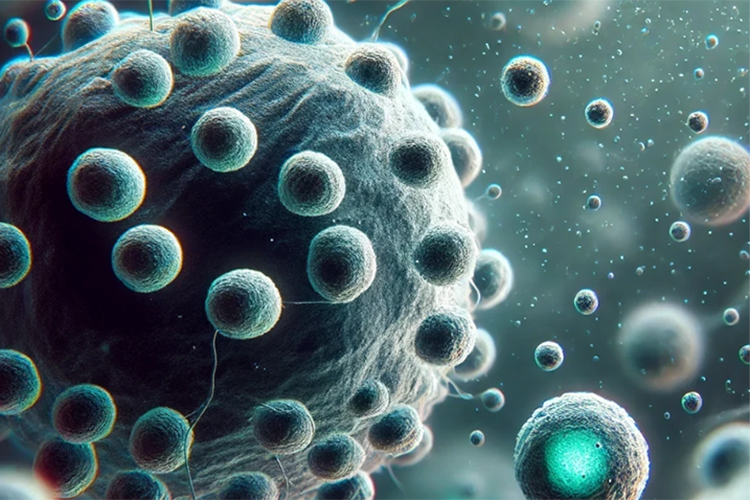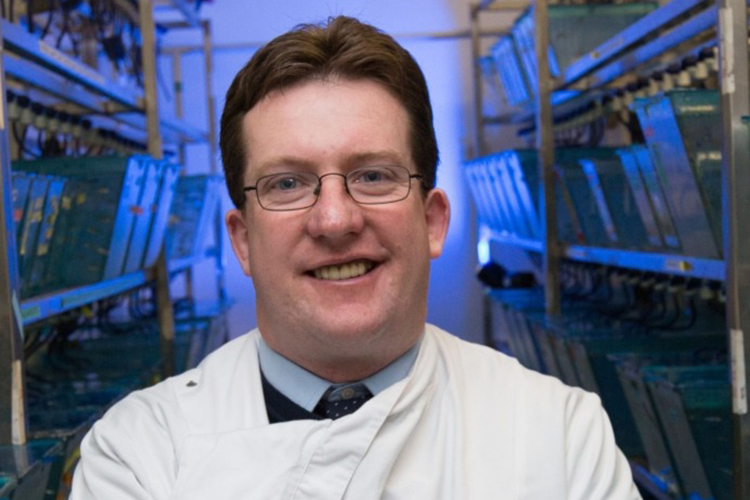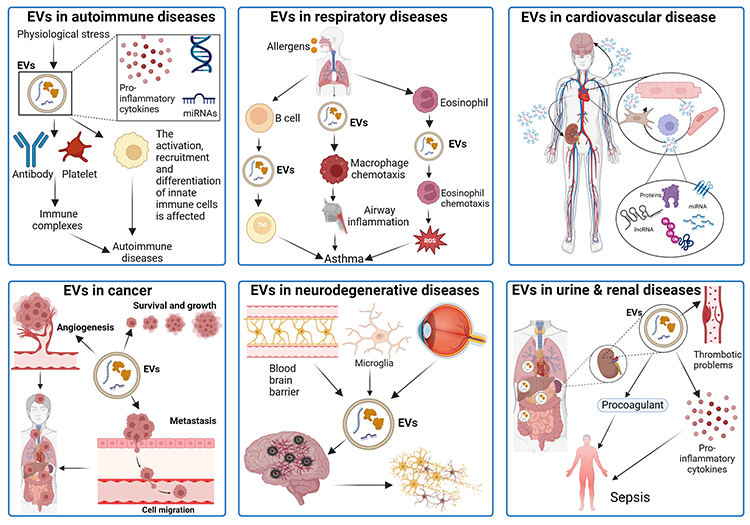UCD-led EU project EVEREST aims to transform cancer and cardiovascular diagnosis and care
Posted 8 November, 2024

A major EU project coordinated by UCD studying particles that act as messengers between cells could transform the diagnosis and treatment of cancer and cardiovascular diseases.
By exploring the potential of extracellular vesicles (EV), EVEREST – funded through the Marie Skłodowska-Curie Actions programme under Horizon Europe - hopes to use these tiny go-betweens to create non-invasive diagnostics and personalised therapies that are more effective against complex diseases.
Coordinated by (opens in a new window)Professor Breandán Kennedy, UCD School of Biomolecular and Biomedical Science, the ambitious €1.3m research project brings together 21 institutions from 11 countries.
“EVEREST represents a bold step forward in the quest for innovative medical solutions. By harnessing the power of extracellular vesicles, we hope to pioneer new diagnostics and treatments that can transform lives,” said Professor Kennedy, a Fellow of the UCD Conway Institute.
“I am thrilled to lead this world-class consortium and look forward to the groundbreaking discoveries we will achieve together.”

Professor Breandán Kennedy, UCD School of Biomolecular and Biomedical Science and a Fellow of the UCD Conway Institute of Biomolecular & Biomedical Research
EVs are released by cells and carry proteins, lipids, and nucleic acids, making them key vehicles for cell-to-cell communication.
EVEREST will focus on standardising methods for isolating and characterising these vesicles, facilitating their use to improve the precision and effectiveness of treatments for complex diseases such as cancer and cardiovascular conditions.
Other PIs in the consortium include Conway Fellows (opens in a new window)Associate Professor Gerard Cagney, Director of the Proteomics Core Facility, (opens in a new window)Associate Professor Alfonso Blanco, Director of the Flow Cytometry Core Technology Unit, and (opens in a new window)Dr Dimitri Scholz, Director of Biological Imaging.
Commenting on the project launch, Director of the UCD Conway Institute (opens in a new window)Professor Helen Roche said the institute was delighted to host EVEREST, adding that the project was “an exciting initiative, given the key role EVs play in cell-to-cell and inter-organ communication”.
“No doubt, multiple research and innovation staff from diverse backgrounds will gain invaluable experience and training as part of the EVEREST initiative,” she continued.

In addition, (opens in a new window)Associate Professor Margaret McGee, UCD School of Biomolecular and Biomedical Science, and (opens in a new window)Dr Jessica Whelan, Assistant Professor and Head of School, UCD School of Chemical and Bioprocess Engineering will also act as PIs on the project.
“I am absolutely thrilled to see the funding of this exciting consortium project led by Professor Kennedy,” said (opens in a new window)Professor Jeremy Simpson, Principal of UCD College of Science.
“Extracellular vesicles hold immense promise for a variety of biomedical applications, and the interdisciplinary and international nature of the consortium that he has brought together embodies everything that we continually strive for in the UCD College of Science.”
The EVEREST consortium includes top academic and non-academic partners across Europe.
Alongside UCD, the academic members involved are: Trinity College Dublin (Ireland), University of Vigo (Spain), Universidade Nova de Lisboa (Portugal), Luxembourg Institute of Science and Technology (Luxembourg), Justus-Liebig University Giessen (Germany), South East Technological University (Ireland), Linköping University (Sweden), Comenius University Bratislava (Slovakia), Queen’s University Belfast (UK), State Research Institute Centre for Innovative Medicine (Lithuania), and Fundación Progreso y Salud GENYO (Spain).
Non-academic partners include SiriusXT (Ireland), Bioreperia (Sweden), Fox Biosystems (Belgium), Pharmahungary (Hungary), Acousort AB (Sweden), Mursla (UK), Xenopat (Spain), De Rotos y Descosidos (Spain), and Vesiculab Ltd (UK).
By: David Kearns, Digital Journalist / Media Officer, UCD University Relations (with materials from Caroline Byrne, UCD Research and Innovation)
To contact the UCD News & Content Team, email: newsdesk@ucd.ie






